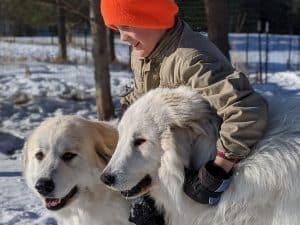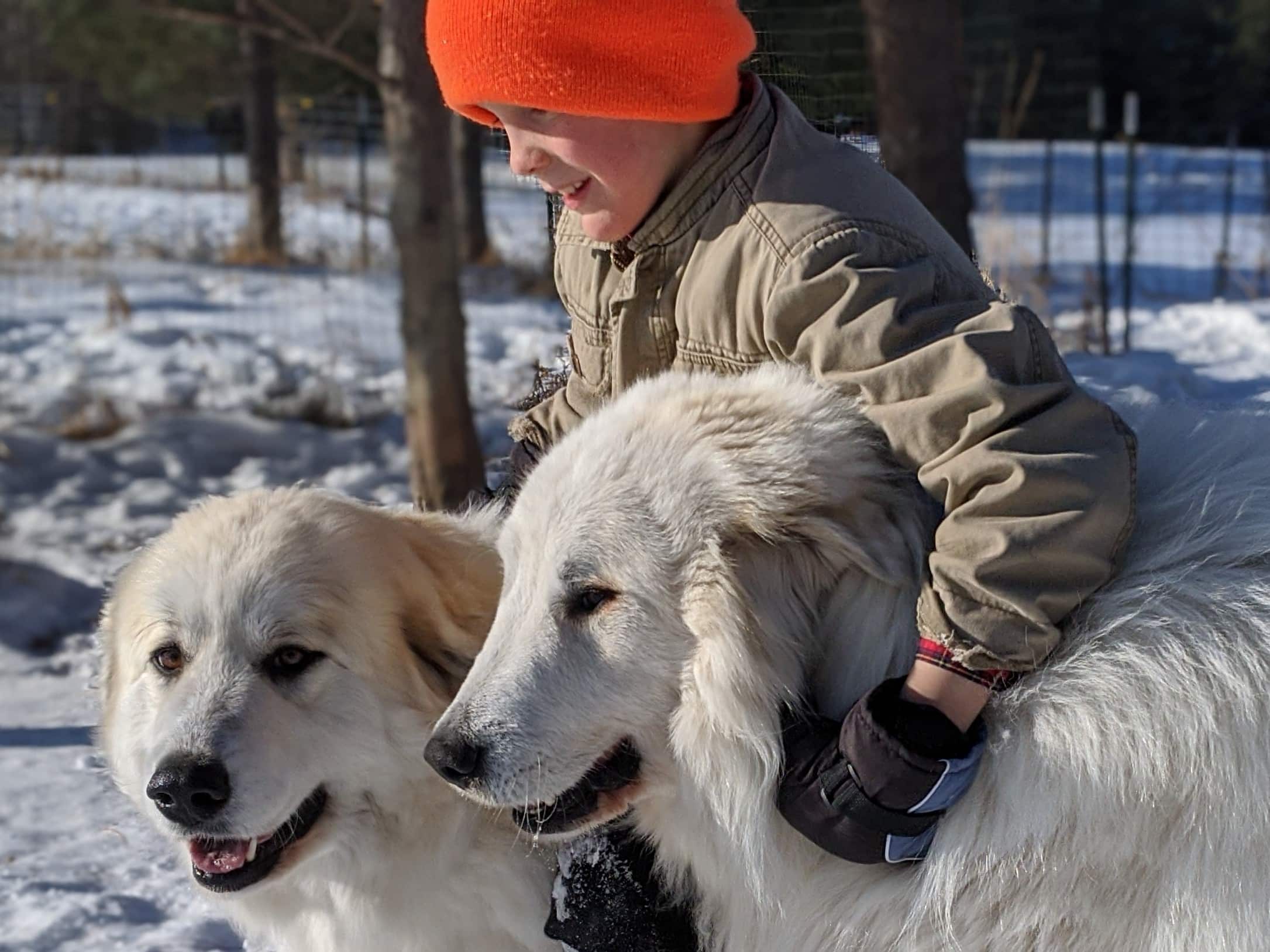Coronavirus disease (COVID-19) and Great Pyrenees
 The Coronavirus disease (COVID-19) is now a global pandemic according to the World Health Organization. Clorox bleach wipes are gone from the shelves and toilet paper is in demand for some strange reason. The Dow Jones Industrial Average is currently 22,132 on March 12th, 2020 as I write this and it declined from 29,551 exactly one month ago which is a 25% drop. We are officially in a bear market. Travel between many countries is banned. Nursing home visitors are not allowed in most facilities. My alma mater the University of North Dakota has moved to remote instruction instead of classrooms. China and the United States are not exactly on friendly terms. COVID-19 is a formidable force against the weak whether young or old.
The Coronavirus disease (COVID-19) is now a global pandemic according to the World Health Organization. Clorox bleach wipes are gone from the shelves and toilet paper is in demand for some strange reason. The Dow Jones Industrial Average is currently 22,132 on March 12th, 2020 as I write this and it declined from 29,551 exactly one month ago which is a 25% drop. We are officially in a bear market. Travel between many countries is banned. Nursing home visitors are not allowed in most facilities. My alma mater the University of North Dakota has moved to remote instruction instead of classrooms. China and the United States are not exactly on friendly terms. COVID-19 is a formidable force against the weak whether young or old.
Some of this is definitely warranted and only time will tell if our actions were appropriate one hundred years after the 20-50 million deaths attributed to the 1918 Spanish flu pandemic. Sorry, if I just propagated xenophobia towards the Spanish but there is one historian that believes the Spanish flu actually came out of the Shanxi province in China.1 Whoops, xenophobia again. Why is China a flu incubator? Hysteria has seemed to grip every age group with an irrational fear which itself will lead to unintended consequences.
Could a Great Pyrenees make your children healthier or sick from COVID-19? “There is limited evidence to suggest that your dog is at risk for COVID-19. And there’s no evidence that coronavirus in dogs can spread to humans, according to both the World Health Organization and the Centers for Disease Control and Prevention.”2 There are many people that love having pets. That is why so many people have therapy animals that improve their mental health. However, I want to talk about two big research studies that demonstrate kids with dogs and cats are actually healthier.
The first study was based on 3.4 million dog owners in Sweden that demonstrated a reduction of cardiovascular death rate by 36%.3 This massive study points to mechanisms that reduce stress and improve heart health. Stress itself can inhibit the immune system. Many animals could perform the same function of stress reduction. My son has a hermit crab that delights his soul. He has had so many pets that it’s hard to remember them all.
The second study implicated the immune system specifically. The crux of it is that exposure to dogs and cats at an early age reduces lung-related illnesses.4 This follows a line of reasoning that exposure to allergens, bacteria, and viruses will allow the stimulation of our bodies to respond and this strengthens the immune system. We live in a world that is hostile to life in many ways. But, God has designed life to fight back. Probiotics(good bacteria) in yogurt introduce beneficial bacteria into our gut. Living in a sterile environment doesn’t exercise our immune system. The coddled immune system will not be ready when times of stress come.
So, pet your dog or cat the next time you feel stressed. Don’t try to be so ultra-clean that you miss out on living in real relationships with people and animals around you. Keep going to church and getting together with friends. But, don’t feel obligated to have physical contact through shaking hands or hugs. Also, make sure to wash your hands and take some precautions to stop the spread of this and many other diseases. Jesus said that we should love our neighbors as ourselves. If you stay home to recuperate from an illness, then love your neighbor not just by helping them when they are in need but avoiding getting them sick so that they are not placed in need. Your neighbor is just as valuable in God’s eyes as you are. Relationships are a gift from God and so are Great Pyrenees.
Please check out Up North Pyrenees for your next puppy and please share us with a friend. Leave a comment about this article as well.
1. Garden H, HowStuffWorks, Culture, History, Myth. Did the Spanish Flu pandemic really start in Spain?. HowStuffWorks. https://history.howstuffworks.com/history-vs-myth/did-spanish-flu-pandemic-start-in-spain.htm. Published 2020. Accessed March 13, 2020.
2. Health W. Coronavirus in Dogs: What You Need to Know. Wit & Wisdom. https://blog.wisdompanel.com/coronavirus-in-dogs/?utm_source=newsletter&utm_medium=email&utm_content=Read%20About%20COVID-19%20in%20Dogs&utm_campaign=covid. Published 2020. Accessed March 14, 2020.
3. Mubanga M, Byberg L, Nowak C et al. Dog ownership and the risk of cardiovascular disease and death – a nationwide cohort study. Sci Rep. 2017;7(1). doi:10.1038/s41598-017-16118-6
4. Stokholm J, Chawes B, Vissing N, Bønnelykke K, Bisgaard H. Cat exposure in early life decreases asthma risk from the 17q21 high-risk variant. Journal of Allergy and Clinical Immunology. 2018;141(5):1598-1606. doi:10.1016/j.jaci.2017.07.044

